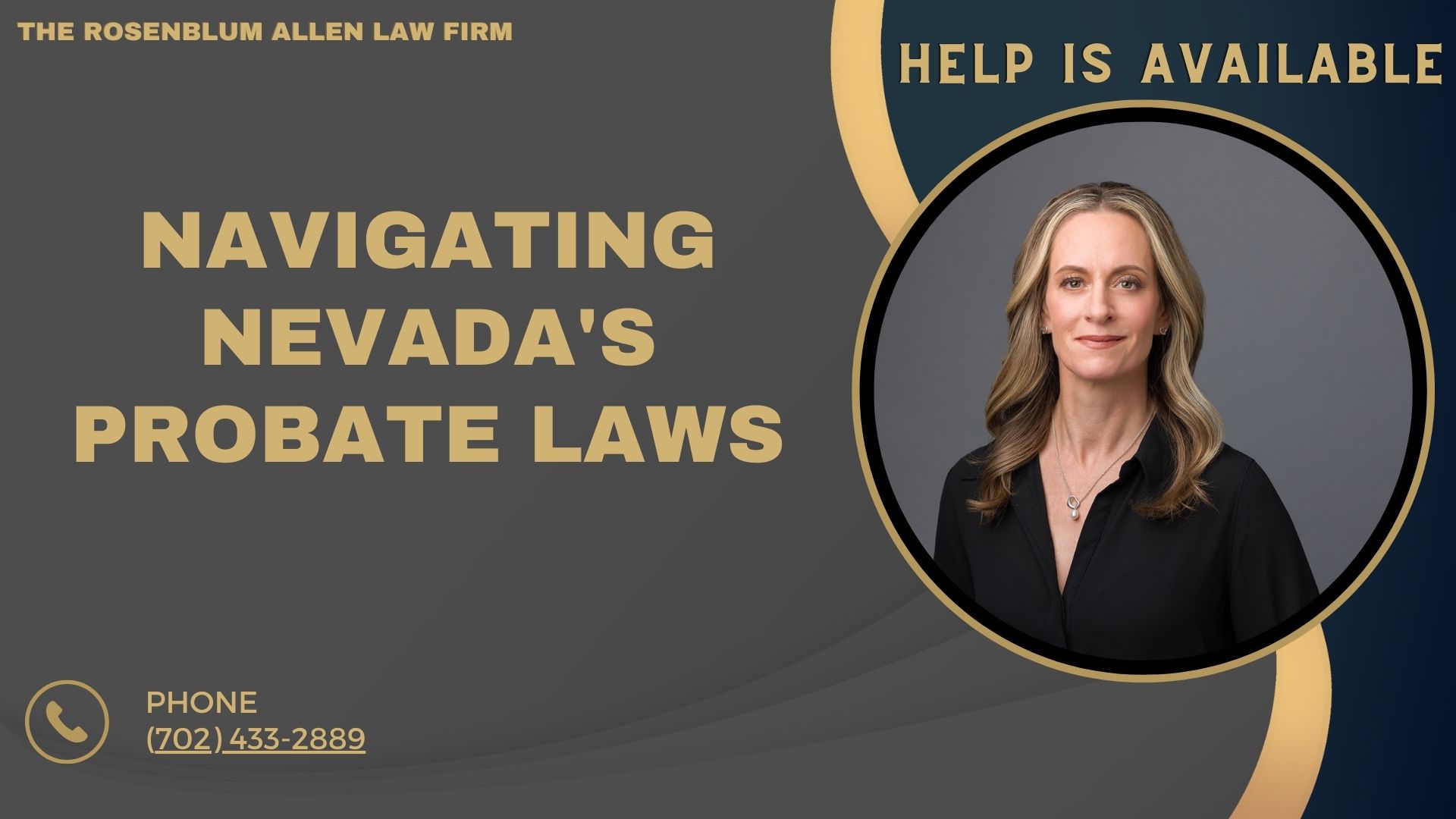Probate is the legal procedure through which a deceased person’s estate is administered and distributed to heirs or beneficiaries. It involves validating a will, resolving debts, and ensuring the proper transfer of assets.

 Legal Definition of Probate
Legal Definition of Probate
Probate is a court-supervised process that authenticates a will, if one exists, and appoints an executor or administrator to handle the estate.
Purpose of Probate in Estate Settlement
- Ensures the decedent’s wishes are honored
- Protects the rights of heirs and creditors
- Provides a clear legal framework for asset distribution
Common Misconceptions About Probate
Many people misunderstand probate, leading to undue fear or confusion.
Probate is Always Expensive
While probate can incur costs, such as court fees and attorney expenses, careful estate planning can help minimize them.
Probate Takes Years to Complete
The timeline depends on the estate’s complexity and state laws. Simple estates can often be resolved within a few months.
When is Probate Necessary?
Situations Requiring Probate
Probate is not always required. Certain circumstances dictate whether an estate must go through this legal process.
With a Will
If a valid will exists, probate ensures it is followed. The court oversees the executor’s actions, ensuring compliance with the law and the decedent’s wishes.
Without a Will (Intestate)
Probate helps distribute the estate according to state intestacy laws when someone dies without a will. This ensures that legal heirs receive their share.
Types of Assets That Go Through Probate
Understanding which assets are subject to probate can clarify whether the process is necessary.
Probate Assets vs. Non-Probate Assets
| Probate Assets | Non-Probate Assets |
|---|---|
| Solely owned real estate | Jointly owned property |
| Personal bank accounts | Accounts with beneficiaries |
| Personal possessions | Life insurance policies |
Examples of Probate Assets
- Sole ownership properties
- Bank accounts without named beneficiaries
- Vehicles titled solely in the decedent’s name
- Investments not designated as payable on death

Steps in the Probate Process
The probate process can seem daunting, but breaking it down into clear steps makes it easier to understand. Each stage has a specific purpose and helps ensure the transfer of the deceased person’s assets.
Filing the Petition
The first step is filing a petition with the probate court.
- This petition starts the legal process.
- It typically includes a request to appoint an executor or administrator to manage the estate.
- The court will schedule a hearing to review the petition.
If the deceased had a will, it’s submitted at this stage. The court will review it to confirm its validity.
Validating the Will
Once the petition is filed, the court focuses on validating the will.
- The will must meet state requirements, such as being signed and witnessed.
- If there’s a question about its authenticity, someone may contest it.
Grounds for Contesting a Will:
- Fraud or forgery
- Undue influence
- Lack of mental capacity
- Improper execution
If no one contests the will, the court approves it and moves forward.
Inventorying the Estate
This step involves identifying and valuing everything the deceased owned.
- Assets are categorized as real estate, personal property, and financial accounts.
- Debts and liabilities are also documented.
The executor files this inventory with the court. This ensures transparency and provides a complete picture of the estate.
Settling Debts and Taxes
Before distributing assets, the executor must handle all debts and taxes.
- Creditors are notified and given time to make claims.
- Valid claims are paid from the estate.
- The executor files any required tax returns, including final income and estate taxes.
If the estate doesn’t have enough assets to cover debts, the court decides how to proceed.
Distributing the Remaining Assets
Once debts and taxes are settled, the remaining assets are distributed.
- If there’s a will, the executor follows its instructions.
- If there’s no will, state intestacy laws determine who gets what.
The court oversees this process to ensure fairness and compliance with the law.
Key Roles in the Probate Process
Executor or Administrator
The executor or administrator is the central figure in probate.
Responsibilities Include:
- Filing the petition and managing the estate
- Notifying creditors and beneficiaries
- Handling taxes and distributing assets
Who Can Serve as an Executor?
Most states require the executor to be:
- Over 18 years old
- Of sound mind
- Without a felony conviction
Probate Court
The probate court ensures the process is handled according to the law.
- It oversees the executor’s actions.
- It resolves disputes, such as will contests or creditor claims.
The court acts as a neutral party to protect everyone’s rights.
Attorneys and Other Professionals
Professionals often assist with probate to ensure accuracy and efficiency.
- Attorneys: Help with legal filings and represent the executor or beneficiaries.
- Appraisers: Provide accurate values for assets like real estate or collectibles.
- Accountants: Ensure proper tax filings and financial management.

Probate Alternatives
Probate isn’t always necessary. Many people plan their estates to avoid it altogether. This can save time and money and reduce loved ones’ stress. Let’s explore some common probate alternatives.
Living Trusts
A living trust is one of the most effective ways to avoid probate.
- The trust holds assets while the person is alive.
- After death, the assets transfer directly to the beneficiaries without court involvement.
How Does a Living Trust Work?
- A trust is created, and assets are transferred into it.
- The person creating the trust (the grantor) names a trustee to manage it.
- Upon the grantor’s death, the trustee distributes the assets according to the trust’s instructions.
Advantages of a Living Trust:
- Avoids probate entirely.
- It provides privacy since it doesn’t go through public court records.
- Allows quicker distribution of assets.
Joint Ownership
Joint ownership is another way to bypass probate. Certain types of joint ownership include “rights of survivorship.” This means that when one owner dies, the other automatically inherits the property.
Examples of Joint Ownership:
- Joint tenancy: Common for homes or real estate.
- Tenancy by the entirety: Available only to married couples in some states.
Benefits of Joint Ownership:
- Simple and cost-effective.
- There is no need for probate for jointly owned assets.
However, this option requires careful consideration. Adding someone as a joint owner can expose the property to creditors or legal issues.
Transfer-on-Death Designations
Many financial accounts and assets allow for transfer-on-death (TOD) designations. This means the asset transfers directly to the named beneficiary upon death, skipping probate entirely.
Assets That Allow TOD Designations:
- Bank accounts
- Retirement accounts (e.g., IRAs, 401(k)s)
- Investment accounts
- Vehicles (in some states)
Setting up TOD designations is straightforward. Most financial institutions have forms where you can list beneficiaries.
Challenges and Issues in the Probate Process
Even with careful planning, the probate process can face challenges. Being aware of these potential hurdles can help you navigate them.
Contested Wills
A contested will is one of the most common probate challenges.
Why Are Wills Contested?
- Allegations of undue influence (e.g., someone coerced the deceased).
- Claims of forgery or fraud.
- Questions about the deceased’s mental capacity when signing the will.
- Conflicts over ambiguous language in the will.
Resolving contested wills often involves court hearings, which can delay the probate process and increase costs.
Delays and Costs
Probate isn’t always quick or cheap. Some estates face delays or high expenses.
- Delays can occur due to disputes, missing documents, or complex assets.
- Costs: Include court fees, attorney fees, and executor compensation.
To manage these issues:
- Keep estate documents organized.
- Ensure the will is clear and up to date.
- Seek professional guidance when needed.
Fraud and Mismanagement
Unfortunately, fraud and mismanagement can occur during probate.
- An executor might mishandle funds.
- Beneficiaries might not receive their rightful inheritance.
To prevent this:
- Choose a trustworthy executor.
- Have the court oversee significant actions, like selling property.

How to Simplify the Probate Process
While probate can be complex, there are ways to make it easier for everyone involved.
Pre-Planning Tips
Good planning is the key to simplifying probate.
- Organize important documents, such as wills, deeds, and account information.
- List all assets and liabilities to make inventorying the estate easier.
- Consider creating a living trust to avoid probate entirely.
Choosing the Right Executor
The executor plays a crucial role in the probate process. Picking the right person can prevent future problems.
Factors to Consider When Choosing an Executor:
- Are they trustworthy?
- Do they understand financial and legal matters?
- Are they willing and able to take on the responsibility?
Some choose professional executors, like attorneys or financial advisors, to ensure impartiality and expertise.
How to Avoid Probate
Avoiding probate can save your loved ones time, money, and stress. While it’s not possible in every situation, there are several strategies you can use to minimize the need for probate.
Planning Ahead
Proper planning is the first and most crucial step to avoiding probate.
Tips for Effective Planning:
- Create a comprehensive estate plan.
- Keep your documents up to date.
- Regularly review beneficiary designations.
Using Living Trusts
A living trust is one of the most effective tools for avoiding probate.
- Transfer your assets into a trust during your lifetime.
- Name beneficiaries to receive these assets after your death.
Assets in a trust don’t go through probate because they’re legally owned by the trust, not by you.
Adding Beneficiary Designations
Beneficiary designations are a simple and efficient way to bypass probate.
Common Assets with Beneficiary Designations:
- Life insurance policies
- Retirement accounts (e.g., 401(k), IRA)
- Payable-on-death (POD) bank accounts
- Transfer-on-death (TOD) investment accounts
Keeping these designations current ensures assets go directly to your chosen beneficiaries.
Owning Property Jointly
Joint ownership with rights of survivorship allows the property to pass directly to the surviving owner.
Types of Joint Ownership:
- Joint Tenancy: Common for homes and other real estate.
- Tenancy by the Entirety: Exclusive to married couples in some states.
This method avoids probate but should be approached carefully to avoid unintended consequences, such as exposing property to the co-owner’s debts.
Gifting During Your Lifetime
Gifting assets while you’re alive reduces the size of your estate and can help avoid probate.
Advantages of Gifting:
- Immediate transfer of ownership.
- Reduces taxable estate.
However, staying within the annual gift tax exclusion limit is essential to avoid triggering gift taxes.
Community Property Agreements
In some states, married couples can use community property agreements to transfer property to the surviving spouse without probate.
- These agreements are simple to set up.
- They work only in states with community property laws.

Steps to Take If You’re Involved in the Probate Process
Being involved in probate can feel overwhelming, especially if it’s your first experience. Knowing what steps to take can make the process easier and less stressful.
Gather Important Documents
The first step is collecting all the necessary paperwork.
- Look for the will if one exists.
- Collect financial documents, including bank statements, investment records, and property deeds.
- Gather information about debts, such as mortgages, credit cards, and unpaid bills.
Keep everything organized in one place. This will save time and prevent confusion later.
File the Will with the Court
If there’s a will, it must be filed with the probate court in the deceased person’s county.
- Submit a copy of the death certificate.
- The court will determine if the will is valid.
This step officially starts the probate process.
Appoint an Executor or Administrator
The court appoints someone to manage the estate.
- If the will names an executor, the court usually approves this choice.
- If there’s no will, the court assigns an administrator, often a close family member.
The executor or administrator is responsible for overseeing the estate’s affairs.
Notify Beneficiaries and Creditors
The executor must notify everyone involved in the estate.
- Beneficiaries named in the will are informed about their inheritance.
- Creditors are notified and given a chance to make claims against the estate.
This step ensures transparency and allows the executor to address any outstanding debts.
Inventory the Estate
An inventory lists all the assets and liabilities of the estate.
Everyday Items to Include in the Inventory:
- Real estate properties
- Bank and investment accounts
- Personal belongings of value (e.g., jewelry, artwork)
- Debts and liabilities
The inventory helps determine the estate’s overall value and guides the distribution process.
Pay Debts and Taxes
Before distributing assets, the executor must settle the estate’s obligations.
- Pay off debts, such as loans and credit card balances.
- File the deceased person’s final income tax return.
- Pay estate or inheritance taxes if required.
Distribute Remaining Assets
Once all debts and taxes are paid, the executor distributes the remaining assets to the beneficiaries.
- Follow the instructions in the will if one exists.
- If there’s no will, distribute assets according to state intestacy laws.
Close the Estate
The final step is closing the estate.
- File a final accounting with the probate court.
- Provide proof that all debts were paid and assets distributed.
- Obtain the court’s approval to close the estate officially.
At this point, the probate process is complete.
When to Seek Legal Help
The probate process isn’t always straightforward. There are times when seeking legal guidance is necessary.
Complex Estates
Some estates are more challenging than others.
- Estates with significant assets, like businesses or multiple properties, may require specialized handling.
- International assets or beneficiaries add additional layers of complexity.
An attorney can help navigate these situations efficiently.
Disputes Among Beneficiaries
Disputes can arise over inheritance, the validity of a will, or the executor’s actions.
- An attorney can mediate disagreements and represent the estate’s interests.
- This reduces the likelihood of costly and lengthy legal battles.
Unclear or Missing Wills
If there is no will or the will is unclear, an attorney can interpret state laws and provide guidance.
- They can help ensure a fair distribution of assets.
- Legal counsel ensures compliance with all legal requirements.
Unfamiliarity with Probate Law
Most people don’t have experience with probate law.
- Hiring an attorney provides experienced guidance.
- They can handle court filings, creditor negotiations, and other technical tasks.
Legal support ensures the probate process is handled correctly and minimizes stress for everyone involved.
Common Challenges in the Probate Process
Probate isn’t always smooth. Unexpected challenges can complicate the process and delay resolution. Understanding these common hurdles can help you prepare.
Disputes Over the Will
Sometimes, disagreements arise about the validity or terms of the will.
Reasons Wills Are Contested:
- Suspicions of forgery or fraud.
- Claims of undue influence on the deceased.
- Allegations that the person lacked the mental capacity to create the will.
Resolving these disputes may require court intervention and can significantly delay the process.
Executor Mismanagement
An executor plays a crucial role in probate. But if they mismanage the estate, problems can arise.
Signs of Executor Mismanagement:
- Delays in paying debts or distributing assets.
- Lack of communication with beneficiaries.
- Failure to follow the will’s instructions or court orders.
Beneficiaries can request the court to remove an executor if issues persist.
Locating All Assets
Sometimes, finding all the deceased person’s assets is a challenge.
- Some assets, such as safety deposit boxes or offshore accounts, might be hidden.
- Digital assets, like cryptocurrency or online accounts, can be overlooked.
Thorough investigation and professional help, like hiring forensic accountants, can be necessary.
Paying Debts and Taxes
Large or unexpected debts can complicate probate.
Challenges Executors Face:
- Identifying and verifying legitimate debts.
- Deciding which assets to sell to cover costs.
- Handling disputes with creditors over claims.
Tax issues can also arise, especially with complex estates. Missing deadlines or miscalculating taxes can lead to penalties.
Disputes Among Beneficiaries
Family dynamics can complicate the process.
- Sibling rivalry over sentimental items or valuable property.
- Disagreements on how assets are distributed or managed.
Mediation can help resolve conflicts without escalating to court battles.
Intestate Succession
The estate is distributed according to state laws if the deceased left no will.
Complications of Intestate Succession:
- Family members may disagree with the court’s decisions.
- Non-family members, like unmarried partners, may be excluded.
Intestate cases often take longer to resolve due to legal requirements.
Complex or International Assets
Estates with unique or international assets can face added difficulties.
Examples of Complex Assets:
- Businesses or partnerships require valuation and management.
- Real estate in multiple jurisdictions.
- Foreign assets are subject to international probate laws.
Professional appraisers, attorneys, and tax advisors may be needed to handle these assets properly.
Tips for Navigating Challenges
- Communicate openly with beneficiaries to minimize disputes.
- Seek professional advice early for tax or legal issues.
- Keep detailed records of all transactions and decisions as an executor.

Breaking It All Down
The probate process can seem daunting, especially when unexpected challenges arise. But with proper planning, clear communication, and professional guidance, many of these obstacles can be overcome. Whether you’re an executor, beneficiary, or someone planning their estate, understanding the process is key to making it smoother and less stressful.

Frequently Asked Questions
What Is Probate?
Probate is the legal process of administering a deceased person’s estate. It involves validating the will, paying debts, and distributing assets to the beneficiaries.
Can Probate Be Avoided Completely?
While avoiding probate in every case is impossible, specific strategies—like creating a living trust, adding beneficiary designations, or holding property jointly—can help minimize the need for probate.
What Happens If the Will Is Contested?
If someone challenges the will’s validity, it can lead to a lengthy legal battle. The court will examine the will and resolve any disputes which could delay the probate process.
How Are Assets Valued in Probate?
Assets in an estate must be valued to determine their total value and any applicable taxes. Professional appraisers may be required for valuable assets such as real estate, antiques, or artwork.
What Is the Role of the Executor in Probate?
The executor is responsible for managing the estate through the probate process. This includes filing the will, notifying beneficiaries and creditors, paying debts, filing taxes, and distributing assets.
Can a Beneficiary Be Removed from the Probate Process?
Sometimes, a beneficiary may be removed from the process if they act dishonestly or engage in fraudulent behavior. The court can remove a beneficiary if there is clear evidence of wrongdoing.
Do Debts Get Paid Before Assets Are Distributed?
Yes, debts and taxes must generally be paid before any assets are distributed to beneficiaries. This includes any outstanding bills, loans, and estate taxes.
How Can I Find Out If Probate Is Necessary for a Loved One's Estate?
If you’re unsure whether probate is needed, consult a probate lawyer or contact the probate court in the county where your loved one passed away. If there’s a will, it must be filed with the court to begin the probate process.
How Much Does Probate Cost?
Probate costs can vary depending on the estate’s size and complexity. These costs typically include court, attorney, executor, and appraisal fees. Simple estates may cost less, but more complex estates can result in higher expenses.
What If There's No Will?
If a person dies without a will, their estate will go through probate according to state intestacy laws. The court will distribute the assets to the deceased’s closest family members, such as spouses or children.
Can an Executor Be Paid for Their Services?
Yes, an executor can receive compensation for their time and time managing the estate. The amount varies by state and may be a flat fee or a percentage of the estate’s value.
How Long Does Probate Take If There Is No Will?
The probate process can take longer without a will because the court needs to follow state laws to determine how the estate will be distributed. This can extend the process by several months or more.
What If There Are No Beneficiaries?
Without beneficiaries or heirs, the estate may be transferred to the state. This is known as “escheat,” the state owns any remaining assets.
Can I Challenge the Executor?
If you believe the executor is mismanaging the estate, you can petition the court to remove them. Examples of mismanagement include failing to pay debts or not following the will’s instructions.
How Are Digital Assets Handled in Probate?
Digital assets, such as social media accounts, cryptocurrencies, and online business accounts, must be identified and valued. The executor may need special permission to access these accounts or work with professionals to transfer ownership.

Additional Resources for You from The Rosenblum Allen Law Firm.
State-Specific Probate Laws
Each state has laws regarding probate, which can affect everything from tax obligations to the distribution of assets. To get specific information for your state, refer to these resources:
- Nevada Probate Code
- California Probate Code
- New York Probate Law
Probate and Estate Planning Attorneys
Having a probate attorney by your side can simplify the process. Here are a few resources to find reputable lawyers who specialize in probate:
- American Bar Association’s Find Legal Help
- Nevada State Bar Lawyer Referral
- FindLaw Probate Lawyers Directory
National Probate Court Association
This association provides information on probate court procedures, case law, and helpful tools for individuals going through probate. Visit the National Probate Court Association for resources.
IRS Estate and Gift Taxes
The IRS provides detailed information about federal estate taxes, filing requirements, and estate tax rates. Visit the IRS Estate and Gift Taxes Page for more information.
Books on Probate and Estate Planning
- “The Executor’s Guide: Settling a Loved One’s Estate or Trust” by Mary Randolph
- “Plan Your Estate” by Denis Clifford
- “The Complete Guide to Wills & Estates” by Alexander A. Bove Jr.
Mediation and Dispute Resolution Services
If probate disputes arise, mediation can often resolve issues more efficiently than litigation. Check these resources for local mediation services:

Offsite Resources for You
American Bar Association: A leading resource for legal information and professional guidance on probate laws and practices.
National Probate Court Association: Offers helpful tools, case law, and information on probate court procedures.
FindLaw – Probate: Provides comprehensive articles, resources, and lawyer directories on probate matters.
State of Nevada Judiciary: Access Nevada’s official court resources, including information on probate and estate matters.
National Association for Community Mediation: Provides access to mediation services that may help resolve probate disputes.
IRS Estate and Gift Taxes: The official site for federal estate tax information, filing requirements, and guidance on tax rates.
American Academy of Estate Planning Attorneys: A trusted resource for estate planning attorneys offering helpful articles and estate planning resources.

A Special Message from Our Lead Attorney, Molly Rosenblum Allen, Esq

Thank you for taking the time to explore these resources. I hope you found them helpful in understanding the probate process. If you have any further questions or need assistance with your specific situation, my team and I are here to help. Please feel free to call us at (702) 433-2889 to get the ball rolling on your case. We’re ready to support you every step of the way.
Best regards,
Molly Rosenblum Allen, Esq.
The Rosenblum Allen Law Firm




